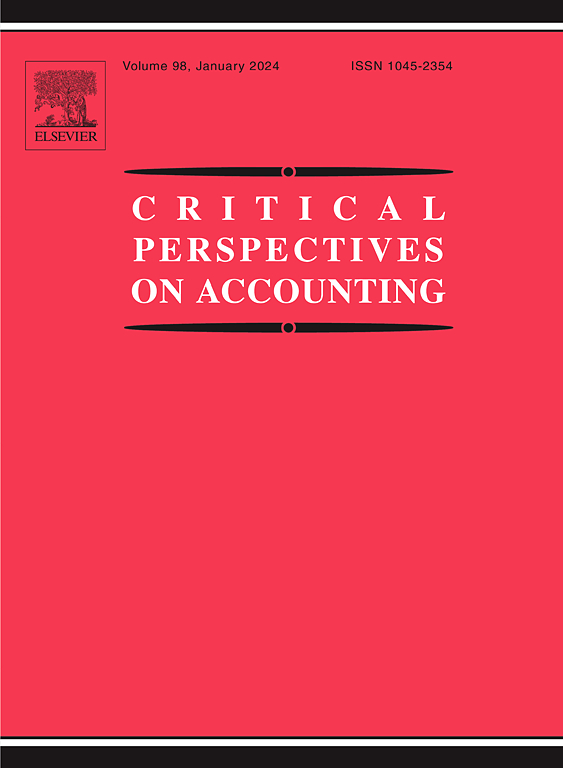From institutional integration to institutional demise: The disintegration of the International Integrated Reporting Council (IIRC)
Abstract
This paper presents an in-depth contextual analysis of the rise and recent demise of the International Integrated Reporting Council (IIRC). The IIRC entered its ‘Breakthrough Phase’ for Integrated Reporting (<IR>) in 2013 and progressed to its ‘Momentum Phase’ in late 2018. The ‘Global Adoption Phase’ of <IR> was expected to commence in 2021 and conclude in 2026. However, by the middle of 2023, the IIRC ceased to exist as a separate entity and the future adoption of its much vaunted <IR> Framework was fundamentally uncertain. Drawing on a comprehensive examination of documentary evidence and a series of 34 in-depth interviews with key players associated with the IIRC’s development, this paper studies how and why the IIRC went so rapidly from being a notable ‘is’ to a definitive ‘was’ in less than a decade. Our analysis traces the IIRC’s shifting strategic priorities in pursuit of a new corporate reporting norm and illustrates how these priorities underpinned a concerted effort at institutional integration in the corporate reporting field. We show how the nature of this attempted integration eventually led to the IIRC’s demise. In seeking to understand the IIRC’s strategic choices and actions we pinpoint the interrelated significance of ‘invisibilities and exclusions’, ‘the dance of agency’, and ‘conceptual promiscuity’. We conclude that the IIRC’s ultimate legacy may not be what it integrated in terms of corporate reporting but what it chose or was required to exclude or forget.

 求助内容:
求助内容: 应助结果提醒方式:
应助结果提醒方式:


